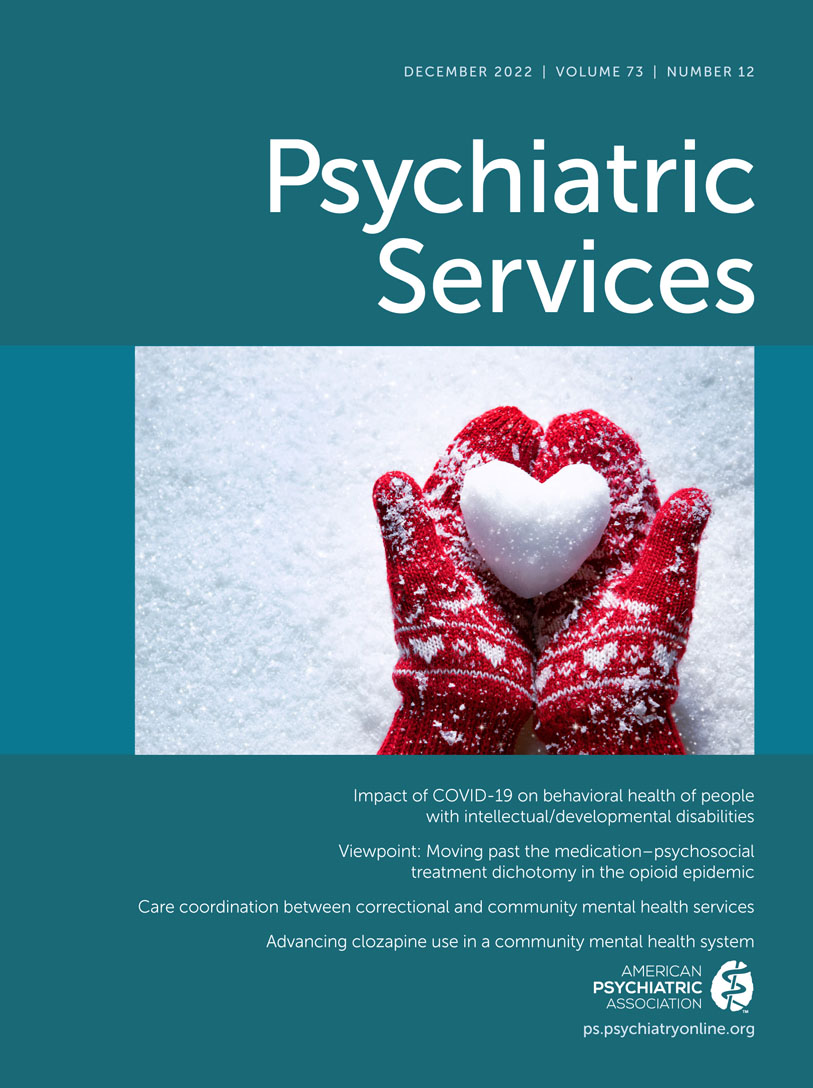Community Behavioral Health Service Use and Criminal Recidivism of People With Mental, Substance Use, and Co-occurring Disorders
Abstract
Objective:
This study assessed the relationship between community behavioral health service (CBHS) use and criminal recidivism in a broad sample of potential beneficiaries and by diagnostic group.
Methods:
Among a cohort of people on probation with any mental and/or substance use disorder (N=772), the study estimated the effect of CBHS use on rearrest with Cox proportional hazards models.
Results:
Service use significantly predicted reduced recidivism among people with any mental disorder (hazard rate=0.36, p=0.008), but not among those with any substance use disorder or co-occurring disorders.
Conclusions:
CBHS use in a given week predicted a 64% reduced recidivism risk during the following week among people with any mental disorder. However, CBHS use had no clear relationship with recidivism among people with co-occurring disorders or any substance use disorder. CBHS use may reduce recidivism, depending on recipient and service characteristics.



